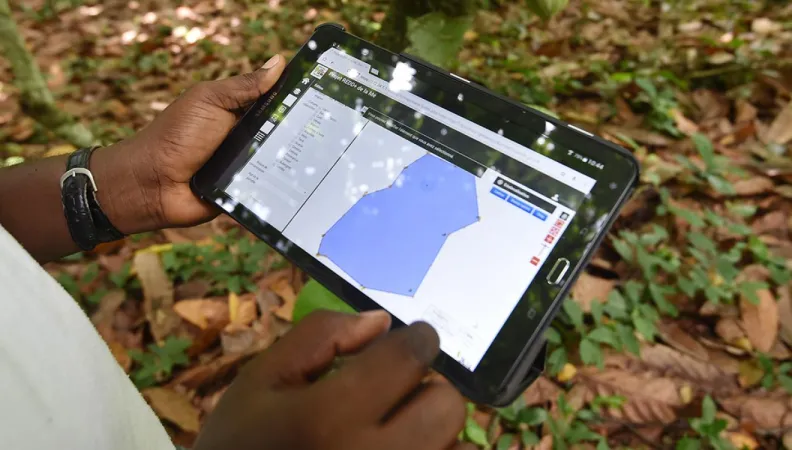Share the page
Evaluation at AFD: A Powerful Tool to Improve Our Actions
Published on

Following AFD's two conferences on evaluation on September 28 and October 1, we examine its value as a tool to measure and assess development interventions. In this interview, Nathalie Le Denmat, Head of AFD’s Evaluation and Knowledge Capitalization Department, reviews AFD’s evaluation policy, the impact of its evaluations, and how to improve the Group’s project evaluation processes.
What is AFD’s stance on evaluation?
Nathalie Le Denmat: AFD has made a lot of progress since conducting its first evaluation 42 years ago, and especially in recent years, which have seen the culture of evaluation take greater hold internally. This trend is the result of both strong support from the highest echelons of AFD as well as a growing demand from our teams in the field, who view evaluation as an opportunity to look back on their actions and learn from their experience.
To encourage this demand and to support the process, we’ve adapted our methods so that operational personnel and project stakeholders are more involved. In this way, evaluation helps back up dialogue on development. We’ve also increased the number of evaluation methodologies we use, so that we can provide suitable responses to the different types of evaluation questions.
These changes have led to an increase in the number of evaluations over the years, although there has been a temporary slowdown due to the Covid-19 crisis. We were nevertheless able to conduct 61 project evaluations in 2019-2020 (compared to 44 in 2017-2018), and we improved our communication targeting the general public interested in development. The two last biennial reports point out the highlights of AFD evaluation, each with a focus on topics of public interest.
The report published in 2019 focuses on biodiversity, and the most recent report, just published in French, centers on the usefulness of evaluation for the people involved in it, that’s to say those who design it, the partners with whom we develop projects, and the beneficiaries of our actions. This new publication is accompanied by a digital campaign to facilitate comprehension of the main results and to summarize major evaluations based on a geographical location or a theme. All this is part of a transparency policy initiated a few years ago. Our evaluations are regularly presented to our Board, and summaries and briefs of them are published.
See also (in French): the first, second (Africa), and third (gender) components of AFD’s evaluation report online.
AFD’s evaluation policy itself has been evaluated. What has that entailed?
Against this backdrop of increased demand for evaluation, as seen by the recent creation of the French Commission on Evaluation of Official Development Assistance, we felt it was important to take stock of our practices and the policy adopted in 2013. The goal was to see if this policy still corresponded to current expectations and if evaluation was really used at AFD, from field-team level up to director level.
To ensure impartiality, this evaluation was conducted by our evaluation committee (Comeva), made up of key persons from outside AFD. The Comeva recruited the consultants and approved all the stages of the study. Three main lessons emerged.
First, evaluation is a powerful tool for improving action, which has been gradually boosted but whose potential is not yet fully exploited. Whether it be the objective of learning to make future projects better or of improving decision-making support, there is room for improvement, and we are going to explore this issue now.
Second, the findings clearly show that evaluation is only one link in a chain of accountability, which starts at the time of project investigation and continues throughout the monitoring of implementation. Reflection with all the departments of AFD has already been launched to improve this aspect of project management.
See also: find out more about evaluations at AFD
Finally, the evaluation backs up our recent policy to involve project stakeholders in the field more systematically in our evaluations. It’s still too often the case that stakeholders view these evaluations as processes imposed by donors, without realizing the benefits they may gain in learning and governance.
Evaluation is a demanding and constantly changing process. In what areas does AFD still need to make progress?
To make improvements on the various points already mentioned, we must strengthen our internal and external dialogue on evaluation. To fuel public discussion on development through evaluation results, we have to better target our programming on the major strategic issues of international solidarity and on the consistency between the actions we carry out and the main commitments made by AFD and by France. We will work in synergy with the Commission on Evaluation of Official Development Assistance, and this will certainly be valuable in helping us make progress along those lines.
Strengthening dialogue with stakeholders in our partner countries will also be one of the main thrusts of AFD Group’s future evaluation policy: a policy where evaluation is done together, with a goal of shared public accountability, and that has the resources to support the public policy dialogues underway.
